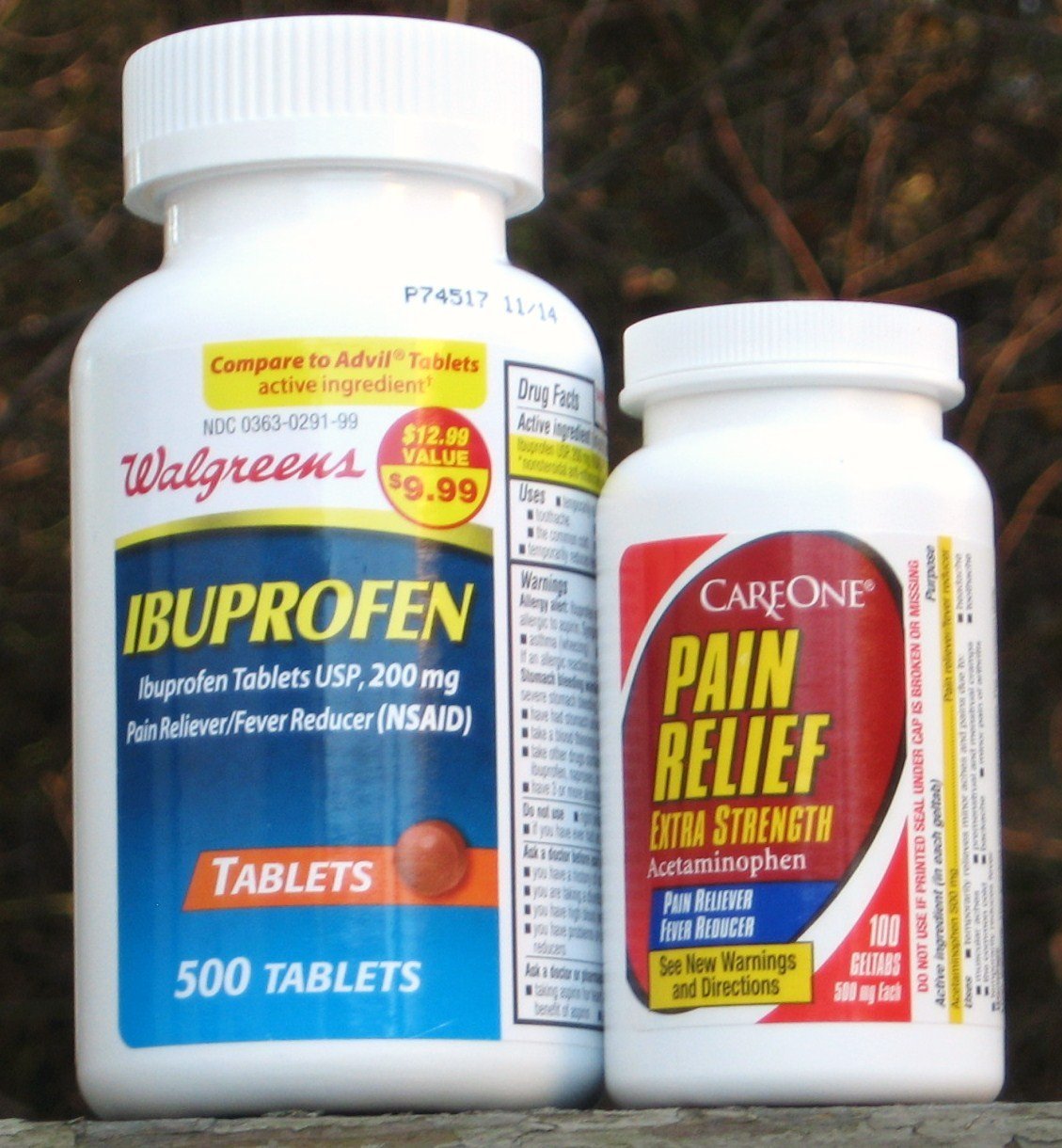

Large doses (more than 4 grams in 24 hours) can damage the liver or kidneys. Side effects of acetaminophen and NSAIDS* Check with a pharmacist to find out what you can safely take with your pain medicines. Most of these drugs are combination products that contain aspirin, ibuprofen, or acetaminophen. If you take any non-prescription medicine for a cold, sinus pain, or menstrual symptoms while you’re taking pain medicines, read the label carefully.If you’re not sure if a medicine contains aspirin, acetaminophen, or ibuprofen, ask a pharmacist.Too much acetaminophen can damage your liver. If one of your prescription medicines has acetaminophen in it, and you also take over-the-counter acetaminophen for pain, you can get too much without knowing it.If one of your doctors tells you not to take aspirin or ibuprofen, or if you can’t take NSAIDs for some reason, be sure to check your medicine labels carefully.It can be dangerous if you take these drugs without being aware of this. Some opioids also contain aspirin or acetaminophen in the same pill. Precautions about aspirin, acetaminophen, and ibuprofen in other medicines NSAIDs may also raise your risk of heart attack or stroke, especially if you take them for a long time.Ĭhildren and teens should not take aspirin or products that contain it. It can cause stomach upset and raise the risk of having reflux or even bleeding in the stomach. If you drink alcohol, be careful taking NSAIDs. Are taking oral medicine (drugs by mouth) for diabetes or gout.Have stomach ulcers or a history of ulcers, gout, or bleeding disorders.Are allergic to aspirin or any other NSAIDs.In general, NSAIDs should be avoided by people who: Some people have a higher risk of complications related to NSAIDS. See the chart below for examples of commonly used NSAIDs. Before you take any NSAIDs or other non-opioids, ask your doctor, pharmacist, or nurse if it’s safe for you to take it with your other medicines, and how long you can take it. Either alone or used with other medicines, NSAIDs can help control pain. Non-steroidal anti-inflammatory drugs (NSAIDs) work a lot like aspirin. Your doctor needs to know if you have a fever because it could mean you have an infection, which needs to be treated quickly. Your doctor may not want you to take acetaminophen regularly if you’re getting chemotherapy because it can cover up a fever. See the section on Precautions about aspirin, acetaminophen, and ibuprofen in other medicines. You also need to be careful about taking other drugs that have added acetaminophen. Even moderate amounts of alcohol (3 drinks per day) can lead to liver damage in people taking acetaminophen. But liver and kidney damage may result if you take large doses of this medicine every day for a long time or drink alcohol with the usual dose. People rarely have side effects from the usual dose of acetaminophen. It relieves pain much the same way NSAIDs do, but it doesn’t reduce inflammation as well as NSAIDs do. AcetaminophenĪcetaminophen is commonly known as Tylenol. Waiting too long can make the pain harder to treat. In many cases, non-opioids are all you’ll need to relieve your pain, especially if you “stay on top of the pain.” Staying on top of the pain means you should take pain relievers regularly, and not wait until your pain level becomes too intense. These medicines are stronger pain relievers than most people realize. Some can be bought without a prescription (over-the-counter).

Non-opioids or non-narcotics, like acetaminophen and non-steroidal anti-inflammatory drugs (NSAIDs) control mild to moderate pain.


 0 kommentar(er)
0 kommentar(er)
